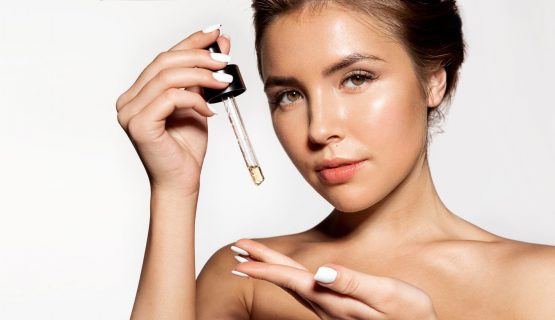
CBD oil has become popular in skincare for its potential anti-inflammatory and antioxidant properties, which can help with conditions like acne, eczema, and signs of aging. When using it, it’s important to choose high-quality products and be aware of potential side effects and interactions.
Benefits of CBD oil for skin
- Anti-inflammatory: CBD is known for its anti-inflammatory effects, which can help reduce the redness and irritation associated with acne, eczema, and psoriasis.
- Antioxidant: CBD contains powerful antioxidants that protect the skin from free-radical damage caused by environmental stressors. This can reduce visible signs of aging, such as wrinkles, dullness, and fine lines.
- Regulates oil production: Research shows that CBD may help balance the skin’s oil production, making it beneficial for both oily and dry skin types. By preventing excess sebum, it can help reduce acne breakouts.
- Calms sensitive skin: Due to its soothing properties, CBD can help minimize issues related to skin sensitivity, including redness and reactivity, making it suitable for sensitive skin types.
- Promotes healing: Some studies suggest that CBD may aid in wound healing and help with the appearance of acne scars.
How to use CBD oil on your skin
CBD oil can be applied topically in various forms, including oils, serums, creams, and lotions.
- Choose a topical product. Topical applications, such as creams and balms, work by interacting with receptors in the skin’s outer layers for localized relief.
- Clean and dry the area. Start by washing the targeted area with a gentle cleanser to allow for better absorption.
- Patch test first. Before applying a new product to a larger area, perform a patch test on a small, discreet patch of skin, like your inner forearm. Wait 24 hours to check for an allergic reaction.
- Apply gently. Dispense a few drops or a pea-sized amount onto your fingers. Gently press and massage the product onto the skin in upward, outward motions until absorbed.
- Layer with other products. A CBD serum can be applied before a heavier moisturizer to lock in hydration. If using active ingredients like retinol, apply CBD afterward to soothe any potential irritation.
What to avoid and consider
- Poorly regulated products: The FDA does not regulate nonprescription CBD products, so they may contain inconsistent levels of CBD or other active ingredients. Choose products from reputable brands that provide third-party lab testing results (Certificate of Analysis) to verify purity and potency.
- Potential drug interactions: Oral CBD can interfere with liver enzymes that process other medications, potentially altering their effectiveness. While topical application is less likely to cause this, it is still crucial to consult a healthcare provider if you take prescription medication.
- Allergic reactions: Though rare, some people may be allergic to CBD or other ingredients in the product, such as carrier oils or terpenes. Always check the full list of ingredients and perform a patch test.
- Using CBD during pregnancy: Medical experts advise against using cannabis-derived products during pregnancy or breastfeeding, as there is not enough data on their safety for fetal development.
- Exposing the product to light and air: To maintain effectiveness, look for products in stable, opaque, and airtight packaging.